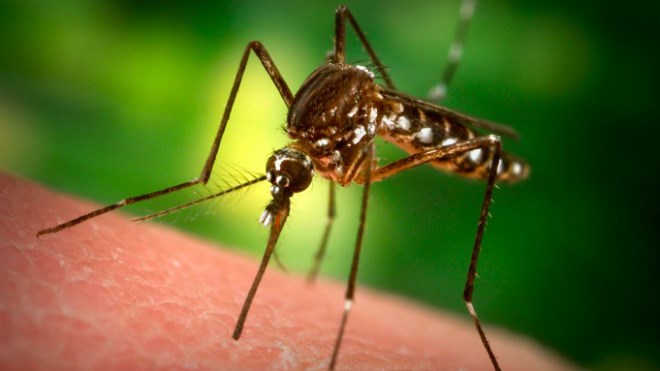The Sudbury and District Health Unit has confirmed West Nile virus in a local adult through laboratory tests. This is the second human case in the health unit’s service area. The first confirmed case occurred in 2006.
A total of 16 probable and confirmed human West Nile virus cases have been reported to date in 2015 in Ontario. This is in addition to the 92 positive mosquito pools reported across the province. To date in 2015, no positive mosquito pools have been reported within the health unit service area. One horse tested positive for WNv and was reported in August 2015.
“We know that West Nile virus is present in the Sudbury and Manitoulin districts because it has been confirmed in birds and in mosquito pools in previous years,” said Dr. Penny Sutcliffe, the health unit's medical officer of health, in a press release. “It is very important to continue to take precautions to avoid becoming infected.”
West Nile virus is spread to humans through the bite of an infected mosquito. Mosquitoes get the virus by feeding on infected birds. The overall risk of becoming infected with West Nile virus is low and roughly 80 per cent of infected people do not show any symptoms. Of the 20 per cent who do have symptoms, most will experience mild illness that may include fever, headache, body ache, nausea, vomiting, and a rash on the chest, stomach or back.
Less than one per cent of infected people will experience serious symptoms including high fever, severe headache, muscle weakness, stiff neck and confusion.
Late summer is typically the highest risk period for West Nile virus. This is because mosquitoes carry high levels of virus at a time when people often relax their precautions. Here are some simple measures you can take to continue to protect yourself and your family:
Reduce risk around the home:
Install or repair screens – Some mosquitoes like to come indoors. Keep them outside by having well-fitting screens on all of your windows and doors.
Remove standing water from around your home where mosquitoes could lay their eggs.
Personal precautions:
Wear light-coloured, long-sleeved shirts; long pants; shoes and socks when outside, especially from dusk to dawn, when mosquitoes are most active.
Use a Health Canada approved insect repellent and be sure to follow the manufacturer’s recommendations.
For more information about West Nile virus, please contact your local office of the Sudbury & District Health Unit or visit www.sdhu.com
Join Sudbury.com+
- Messages
- Post a Listing
- Your Listings
- Your Profile
- Your Subscriptions
- Your Likes
- Your Business
- Support Local News
- Payment History
Sudbury.com+ members
Already a +member?
Not a +member?
Sign up for a Sudbury.com+ account for instant access to upcoming contests, local offers, auctions and so much more.
